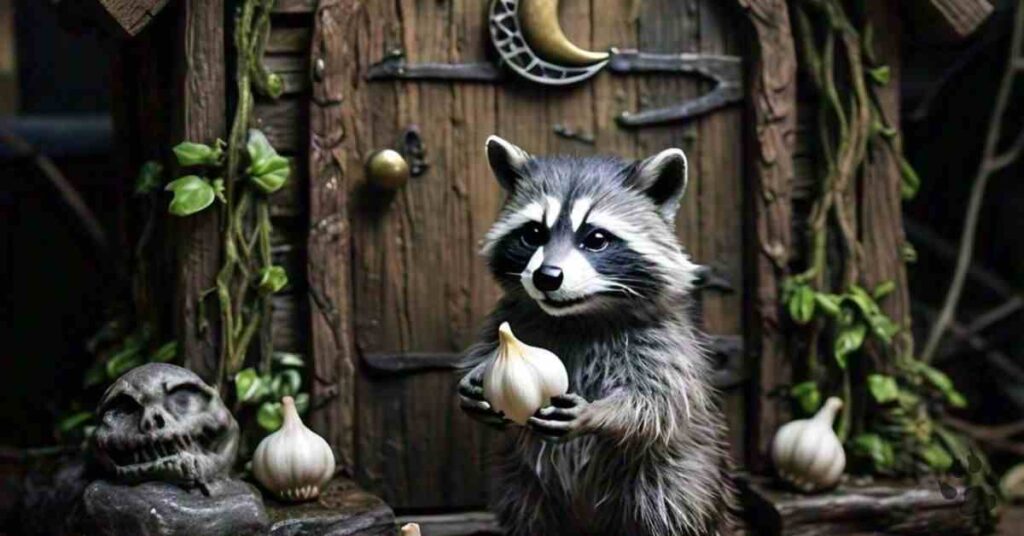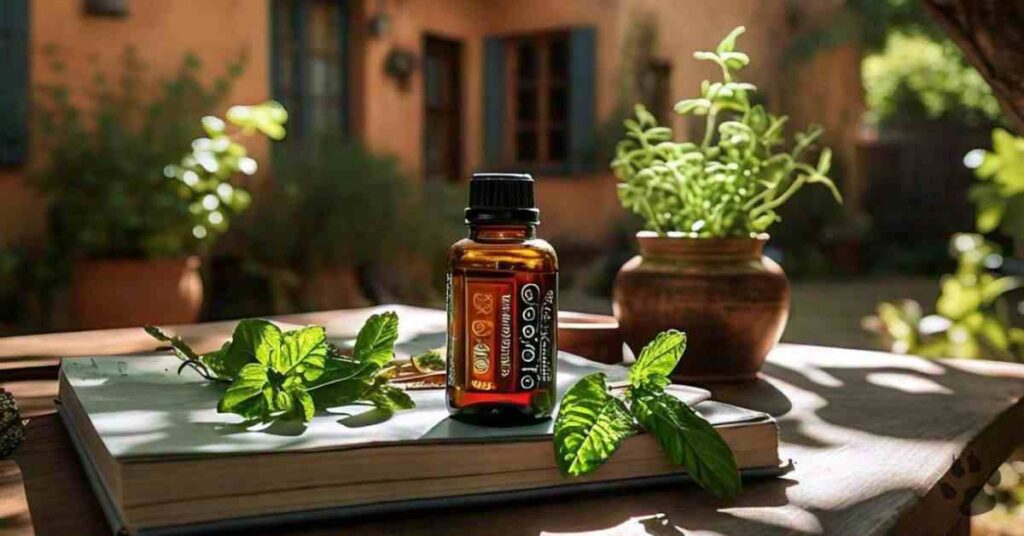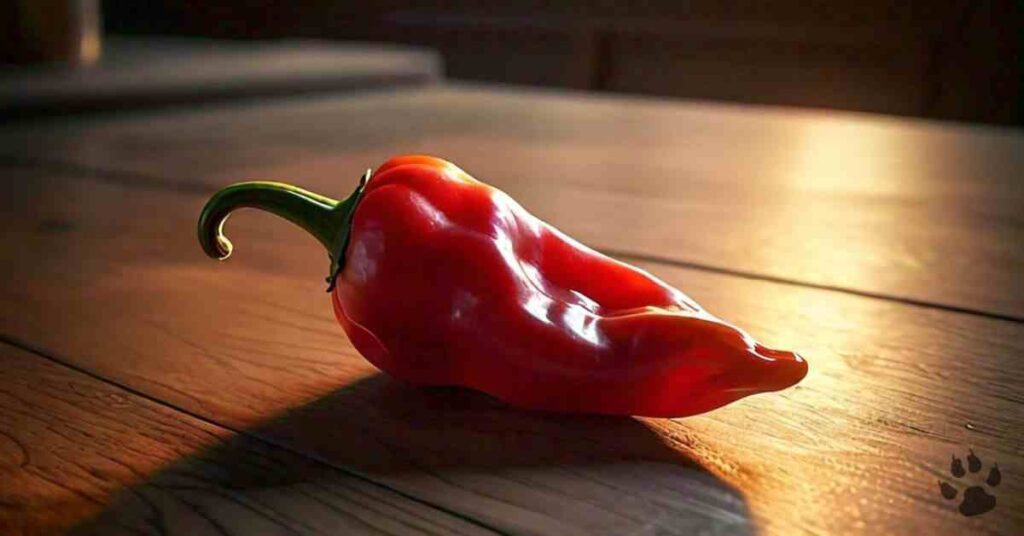What Smells Do Raccoons Hate? Top Smells Raccoons Dislike
If you have frequent raccoons in your home, it’s important to know how to deter raccoons and what smells do raccoons hate. Raccoons are smart and nocturnal animals that can cause a lot of damage outside your yard or on your property.
You can repel them with scents found in your kitchen. To repel raccoons, you can use hot pepper, garlic, peppermint oil, onion, and Epsom salt.

There are also a variety of scents that you can use to deter raccoons. Keep reading the article to get the answers to your questions including Do raccoons eat squirrels?
Homemade raccoon repellent
- Spicy Spray: Add hot pepper sauce or cayenne pepper powder to water.
- Ammonia Spray: Combine ammonia with water and spray it where needed.
- Garlic and Pepper Spray: Combine garlic cloves and chili peppers with water, then strain and spray.
- Vinegar Spray: Combine vinegar with water and spray it on surfaces where raccoons are commonly found.
- Predator Urine: Put fox or coyote urine (you can get it at garden stores) along the edges.
Raccoons Hate
Raccoons hate the following list of scents:
Hot Pepper
Using hot pepper is a good way to keep them away since it irritates their sense of smell. Thus, they are less likely to continue their food search. When you use hot pepper a lot, it could deter these critters from staying away from your place.
Still, hot pepper only disturbs their sense of smell, and its scent decreases over time. If you stop putting hot peppers where raccoons look for food, they’ll return to your house soon.
If you want to keep raccoons away, use them consistently in all places they visit for food or travel paths.
Spray a combination of onion and pepper
This mixture may irritate their sense of smell and emit an unappealing odor to deter raccoons. Even with its sharp aroma, an onion and pepper blend will keep for just a short time.
Over time, the scent fades, so you should use this mixture at least twice a week to ensure raccoons stay away from your property. You might also have to spray it in their usual spots to show them that coming inside will just make their noses unhappy.
Peppermint essential oil
To repel raccoons, combine 10-15 drops of peppermint essential oil with one cup of water in a spray bottle and shake. Distribute the solution near entryways, garbage bins, and garden areas. Soak cotton balls in pure oil and place them strategically.

Apply again every few days. Also, use vinegar or cayenne pepper. Keep trash secure, eliminate food sources, and seal entryways. Wear gloves and avoid spraying plants directly.
For more about the repellent properties of peppermint oil, check out our article What Smells Do Rats Hate?
Garlic juice
Garlic juice is effective against raccoons because of its strong smell. Combine it with water in a spray bottle. Spread this mixture around your garden, garbage bins, and entrances to your home.
Reapply after rain or every few days for best results. The powerful odor drives away raccoons, safeguarding your property from them. If the issue persists, try combining garlic juice with pepper or ammonia.
Epsom Salt
Keep raccoons out by spreading Epsom salt around garden beds, trash cans, or entry points. Raccoons avoid it because of its bitter taste and strong smell, which they dislike due to the magnesium sulfate.

Reapply the salt after rain or watering. Adding Epsom salt to other deterrents, like motion-activated lights or noisemakers, can improve its effectiveness. Keep it out of the reach of pets and children to stay safe.
Ammonia
The presence of nitrogen and hydrogen makes ammonia a useful chemical. It is usually bright yellow. The odor of ammonia is its most noticeable feature. Both humans and pests hate it. That’s why it’s so good at keeping rats, mice, squirrels, and other rodents away.
Spray it in spots where these creatures usually stay or soak rags in it to make a border around their common areas. But don’t forget to wear a gas mask since the scent can be harmful.
Cinnamon
Humans find cinnamon sweet and warm, with a bit of a peppery finish. That’s why it can make your throat and lungs feel uncomfortable if you try to swallow a spoonful. The powerful scent makes raccoons avoid the area.
Fortunately, cinnamon is easy to apply as a repellent. Add powder or oil to water in a spray bottle, or lay cinnamon sticks.
Cayenne Pepper
If you want to deter raccoons with cayenne pepper, mix one-part pepper with two parts water and a bit of dish soap. Apply this blend around your garden, trash cans, and entry spots. Reapply after rain or every few days.

Raccoons find cayenne pepper irritating, which keeps them away by affecting their noses and mouths. Watch out for pets and children, as cayenne pepper could irritate.
Onions
You can keep raccoons away by placing onions strategically around your property. Raccoons don’t like the strong smell of onions, so cut them up small and spread them where they come in.
Replace the onions often because they lose their power over time. Mixing onion juice with water and spraying it around can help keep raccoons away.
Garlic
To keep raccoons away, mix minced garlic cloves with water and a little dish soap to make a spray. Allow it to sit overnight, strain it, and then spray it around spots raccoons frequent, like trash cans or garden beds.
The strong smell of garlic can deter raccoons from your property. Reapply after rain for sustained effectiveness.
Male Hormones
Consider raccoons’ territorial behavior to stop them from using male hormones. Male raccoons detect other males’ hormones, signaling who controls the territory.
Spread synthetic male raccoon hormones around your property to prevent other males from entering, reducing conflicts and territorial marking.
This method uses the instincts of raccoons, using scent to set boundaries effectively without harming the animals or the environment.
Predator Pee
Strategically place the urine of predators such as coyotes, foxes, cats, dogs, and wolves around your property to keep raccoons away using Predator Pee. Raccoons stay away from areas with predators because of their natural self-preservation instincts.
Put the urine in places raccoons often visit, especially gardens, trash areas, and under decks. Reapply after rain or every few weeks to maintain effectiveness.
For the best results in raccoon deterrence, choose Predator Pee products that are safe and ethically sourced.
Vinegar
Use white vinegar-soaked rags near doors, trash bins, and gardens to deter raccoons. The powerful odor deters raccoons, making your property less inviting. Refresh the vinegar every few days or after it rains to maintain its effectiveness.
Improve this method by securing trash and removing food sources. Vinegar is a safe and eco-friendly deterrent that is non-toxic, making it suitable for homes with pets and children.
Roses
The thorny stems of roses discourage raccoons, keeping them away. Planting rose bushes along garden edges or property perimeters not only deters raccoons by blocking easy access but also repels them with their strong scent.

Furthermore, using rose clippings or thorny branches as mulch can also prevent raccoons from digging or foraging. Use this natural approach to keep raccoons away—it’s eco-friendly and effective.
Mothballs
Mothballs can encourage raccoons to leave your attic or under your home if you suspect their presence. Over time, the odor can penetrate the surrounding walls and surfaces. Both you and the rodent will want to leave because of this.
Liquid Fence
Liquid Fence targets pests like mice, squirrels, raccoons, deer, geese, turkeys, snakes, and moles. It contains natural ingredients and oils such as castor, cinnamon, cornmint, cedar, garlic, citronella, geraniol, and eugenol.
Liquid Fence has mixtures designed to repel different types of wildlife. Their All-Purpose Animal Repellent works well against rats, mice, raccoons, and squirrels.
Use Raccoon Eviction Fluid
Using raccoon eviction fluid, you can deter raccoons by mimicking a predator’s scent. Soak rags or cotton balls with the fluid and place them near raccoon entry points or dens. Reapply every few days to maintain the scent.
This safe method encourages raccoons to seek safer spots. Handle the fluid with gloves and follow the manufacturer’s guidelines for best results.
What smells do raccoons like?
Raccoons like many smells, especially food. Their strong sense of smell leads them to prefer scents like garbage, pet food, fruits, and vegetables.

They’re especially attracted to sweet, strong, and savory smells. They frequently look for nearby food guided by these strong smells.
What Smells Do Raccoons Hate Or Avoid?
Ammonia, vinegar, and peppermint oil are scents that raccoons avoid. They also steer clear of predator urine scents, like those from coyotes or wolves. Cayenne pepper and garlic can be used to repel them.
These fragrances disrupt their strong sense of smell, making the area unpleasant and encouraging them to move away. These smells serve as effective deterrents for keeping raccoons out of gardens, trash cans, and attics.
How far away can raccoons smell food?
Raccoons can smell food from as far as a mile away due to their strong sense of smell. They have a strong sense of smell.
This allows them to discover food sources with great accuracy, even in different environments. This sharp skill helps them find food and survive in cities and forests.
Why Do You Need to Keep Raccoons Out?
It’s important to keep raccoons out because they can pose serious health risks. Rabies and leptospirosis are diseases that raccoons can pass to humans and pets. They can damage property by tearing insulation or chewing electrical wires, making fires more likely.
Additionally, you might be wondering, do raccoons come out during the day?
Raccoons can also pollute food sources and water with their feces, facilitating the spread of roundworm parasites. Avoiding raccoon infestations helps protect health, property, and well-being.
What Smells Do Raccoons Hate To Smell?
- Ammonia
- Vinegar
- Peppermint oil
- Predator urine (coyote, wolf)
- Cayenne pepper
- Garlic
What Plants Keep Raccoons Away?
You can plant several fruits and vegetables in your yard that raccoons dislike, such as:
- Thorny plants: Thorns on squash and cucumber vines act as natural defenses. These plants are avoided by raccoons because they don’t like touching or walking on them with their sensitive paws.
- Spicy peppers: Peppers contain capsaicin, a spicy compound that raccoons stay away from. Spicy food bothers raccoons, so if they eat one of your peppers, they won’t come back to your garden. Simply smelling chilis or black pepper can make raccoons leave off.
- Tomatoes: Raccoons will eat almost anything, except acidic plants. Tomatoes have enough acid to keep them away.
- Strong scents: Strong smells like garlic or peppermint can easily overwhelm a raccoon’s sensitive nose. These plants can keep raccoons away and are also easy-to-maintain herbs that add flavor to your dishes.
Do Plants Keep Raccoons Away?
While the mentioned plants can drive raccoons away from your garden for a while, they are not a permanent answer. Removing a raccoon problem needs a more complete approach.
To remove nuisance raccoons once and permanently, you should hire a licensed and trained raccoon removal expert.
Will bleach keep raccoons away?
Bleach does not work well to keep raccoons away. Although the strong smell may deter them at first, it isn’t a reliable or humane method for long-term wildlife management. Bleach becomes ineffective against raccoons as they quickly adapt to smells.
To manage raccoons, ensure trash bins are secure and eliminate food sources. Keep them off your property with humane methods like fencing or securing entry points.
What Smells Do Raccoons Hate But Not Cats?
Ammonia, vinegar, and garlic odors deter raccoons. These scents are too strong for their sensitive noses, making those areas to be unpleasant for them. However, cats tend to be unaffected by these scents and may not show a strong response.
These odors can deter raccoons from certain spots while being safe for cats, offering an effective and pet-friendly way to deal with raccoon problems.
FAQs:
What is the most effective raccoon repellent?
Ammonia, Motion-Activated Sprinklers, Cayenne Pepper, Predator Urine, Ultrasonic Devices, Secure Garbage Binsm, Bright Lights, Physical Barriers, Keep Yard Clean
What scent will keep raccoons away?
Raccoons don’t like the smell of oils such as lemon, eucalyptus, and pine, apart from peppermint oil.
Will vinegar keep raccoons away?
Vinegar, especially apple cider vinegar, repels raccoons.
How to get rid of raccoons permanently?
Keeping raccoons out is the best way to get rid of them. This means keeping them out of areas you want to protect.
What noise do raccoons hate?
Loud music, High-frequency ultrasonic sounds, Human voices, Dog barking, Clapping or banging noises, Metal clanging, Alarm sounds, Motion-activated noise devices
What chemical gets rid of raccoons?
Raccoons will leave at once when they smell ammonia.
What color do raccoons hate?
There are some general principles related to colors and light that can help deter raccoons:
Bright lights (any color, but typically white or yellow), Flashing lights, Reflective surfaces (such as shiny tapes or foils)







